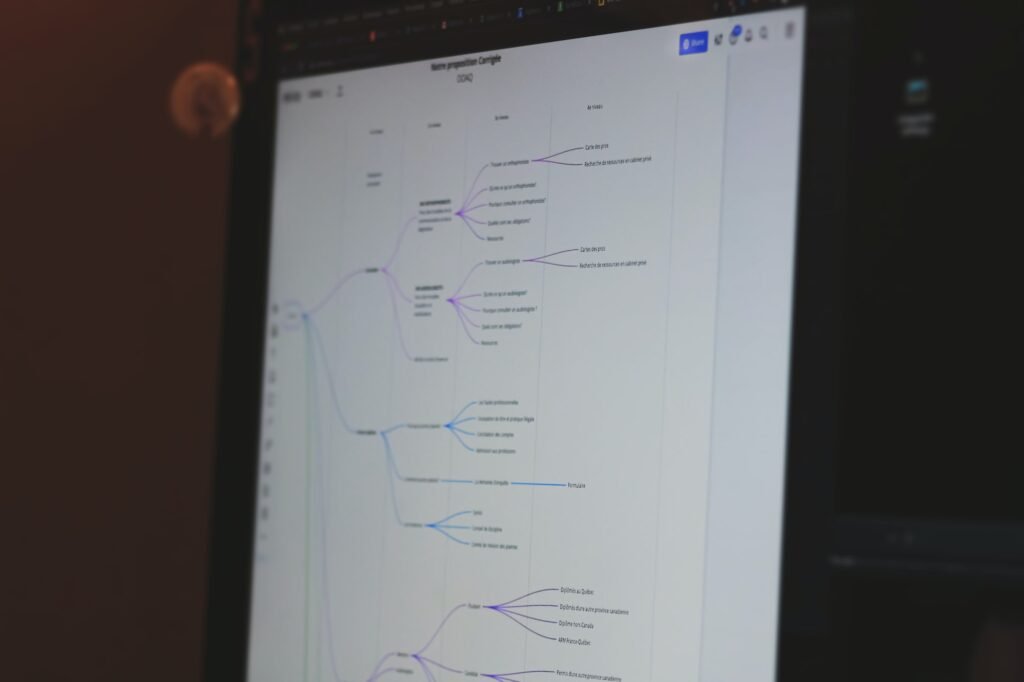Optimizing Server Performance: Unlocking the Potential of Carrier Zone Host

Welcome to our blog post on optimizing server performance and unlocking the potential of Carrier Zone Host! In today’s digital-driven world, where speed and reliability are paramount, having a high-performing server is crucial for businesses. Whether you’re a small startup or a large enterprise, ensuring that your server operates at its peak efficiency can significantly enhance your website’s user experience and overall performance. In this comprehensive guide, we will delve into the intricacies of server optimization, focusing on the remarkable capabilities of Carrier Zone Host. So, fasten your seatbelts, because we’re about to embark on an exciting journey to supercharge your server!
Table of Contents
-
Understanding Server Optimization
-
Introducing Carrier Zone Host
-
Boosting Performance with Carrier Zone Host
-
Fine-tuning Server Configuration
-
Optimizing Database Performance
-
Caching for Speed and Efficiency
-
Content Delivery Networks: Taking Performance to the Next Level
-
Monitoring and Analyzing Server Performance
-
Frequently Asked Questions (FAQ)
-
Conclusion
-
Understanding Server Optimization
In today’s highly competitive online landscape, website speed can make or break user engagement and ultimately impact your bottom line. Server optimization refers to the process of fine-tuning your server’s settings and configurations to ensure maximum performance and efficiency. It involves various techniques such as optimizing server hardware, fine-tuning software configurations, and implementing caching mechanisms. By optimizing your server, you can minimize response times, reduce downtime, improve scalability, and enhance the overall user experience.
- Introducing Carrier Zone Host
When it comes to server optimization, finding the right hosting provider is crucial. Enter Carrier Zone Host, a leading provider in the industry that offers unparalleled performance, reliability, and scalability. With Carrier Zone Host, you can unlock the full potential of your server, ensuring lightning-fast loading times and seamless user experiences. Their cutting-edge infrastructure, powered by state-of-the-art hardware and software, enables businesses to achieve exceptional performance, even under heavy traffic loads.
- Boosting Performance with Carrier Zone Host
Now that we’ve introduced Carrier Zone Host, let’s dive into the various ways it can supercharge your server performance. Here are some key features and optimizations offered by Carrier Zone Host:
- Lightning-Fast SSD Storage: Carrier Zone Host utilizes lightning-fast Solid State Drives (SSDs) for storage, ensuring rapid data retrieval and minimal latency. With SSDs, your server can quickly access and deliver content, significantly enhancing website speed.
- High-Bandwidth Network: Carrier Zone Host boasts a high-bandwidth network that can handle heavy traffic loads without compromising performance. This ensures that your website remains responsive and accessible, even during peak usage periods.
- Advanced Caching Mechanisms: Carrier Zone Host employs advanced caching mechanisms, such as Opcode caching and Content Delivery Network (CDN) integration, to deliver content with lightning speed.
- Scalability and Load Balancing: With Carrier Zone Host, you can easily scale your resources based on your website’s needs. Their load balancing technology ensures that traffic is distributed evenly across multiple servers, preventing bottlenecks and optimizing performance.
- Fine-tuning Server Configuration
To unlock the full potential of Carrier Zone Host, it’s essential to fine-tune your server’s configuration. Here are some key aspects to consider:
- Optimizing Web Server Software: Choosing the right web server software, such as Apache or Nginx, and configuring it for optimal performance can significantly enhance your server’s speed and efficiency.
- Tuning PHP Settings: PHP is a widely used scripting language for web development. By fine-tuning PHP settings, such as memory limits and opcode caching, you can optimize your server’s performance.
- Enabling Gzip Compression: Compressing web content with Gzip reduces file sizes, resulting in faster data transfer and improved page loading times.
- Implementing HTTP/2: HTTP/2, the latest version of the Hypertext Transfer Protocol, offers numerous performance improvements over its predecessor, including multiplexing and server push. Enabling HTTP/2 can significantly boost your server’s performance.
- Optimizing Database Performance
Databases play a crucial role in most web applications. To ensure optimal server performance, it’s essential to optimize your database. Here are some key strategies:
- Indexing: Properly indexing your database tables can improve query performance and reduce response times.
- Query Optimization: Analyzing and optimizing your database queries can help minimize execution time and improve overall server performance.
- Connection Pooling: Implementing connection pooling techniques reduces the overhead of establishing new database connections, resulting in improved performance and efficiency.
- Caching for Speed and Efficiency
Caching is a powerful technique that can dramatically improve server performance by storing frequently accessed data in a temporary storage location. Here are some caching mechanisms to consider:
- Opcode Caching: Opcode caching stores precompiled PHP code in memory, eliminating the need for repetitive parsing and improving PHP execution speed.
- Content Delivery Network (CDN): A CDN is a geographically distributed network of servers that cache and deliver web content based on the user’s location. By leveraging a CDN, you can reduce latency and improve content delivery times worldwide.
- Object Caching: Object caching involves storing frequently accessed database queries or computed data in memory, reducing the need for repeated calculations and database queries.
- Content Delivery Networks: Taking Performance to the Next Level
Content Delivery Networks (CDNs) are a game-changer when it comes to server performance optimization. By distributing your website’s content across multiple servers worldwide, CDNs can significantly reduce latency and improve content delivery times. Here are some key benefits of using a CDN:
- Global Content Delivery: A CDN ensures that your website’s content is delivered from the server closest to the user’s location, reducing latency and improving overall performance.
- DDoS Protection: CDNs often come with built-in DDoS protection mechanisms, safeguarding your website from malicious attacks and ensuring uninterrupted service.
- Scalability: CDNs offer scalable infrastructure, allowing your website to handle increased traffic loads without compromising performance.
- SSL Acceleration: CDNs can also offload SSL/TLS encryption and decryption processes, reducing the server’s workload and improving performance.
- Monitoring and Analyzing Server Performance
To ensure ongoing optimization and maintenance, monitoring and analyzing your server’s performance is crucial. Here are some tools and techniques to consider:
- Server Monitoring Tools: Utilize server monitoring tools to track vital metrics such as CPU usage, memory usage, network traffic, and disk I/O. This data can help pinpoint performance bottlenecks and identify areas for improvement.
- Log Analysis: Analyzing server logs can provide valuable insights into the root causes of performance issues. Look for patterns, errors, and anomalies that may be impacting your server’s performance.
- Load Testing: Conduct regular load tests to assess your server’s performance under high traffic conditions. Load testing helps you identify weak points and optimize your server accordingly.
- Frequently Asked Questions (FAQ)
Q: How can server optimization benefit my website?
A: Server optimization can significantly improve website speed, user experience, and search engine rankings. It reduces response times, minimizes downtime, and enhances scalability.
Q: How does Carrier Zone Host ensure high server performance?
A: Carrier Zone Host utilizes cutting-edge technologies such as SSD storage, high-bandwidth networks, advanced caching mechanisms, and load balancing to deliver exceptional server performance.
Q: Can I optimize my server without technical expertise?
A: While some optimizations may require technical knowledge, many hosting providers, including Carrier Zone Host, offer user-friendly interfaces and automated optimization features that make the process accessible to users without advanced technical skills.
Q: What is the role of caching in server optimization?
A: Caching stores frequently accessed data in a temporary storage location, reducing the need for repetitive computations or queries. It improves server performance by delivering content faster to users.
Q: Are CDNs suitable for all types of websites?
A: CDNs are beneficial for most websites, especially those with a global audience or high traffic loads. However, certain types of websites, such as intranets or purely local websites, may not require a CDN.
- Conclusion
Optimizing server performance is a critical aspect of ensuring a seamless and lightning-fast online experience for your users. By harnessing the power of Carrier Zone Host and implementing the techniques discussed in this guide, you can unlock the full potential of your server. From fine-tuning server configurations to leveraging caching mechanisms and content delivery networks, every optimization step contributes to a faster, more reliable, and user-friendly website. So, take the leap and unleash the true performance capabilities of your server with Carrier Zone Host. Your users will thank you, and your business will thrive in the digital era!


